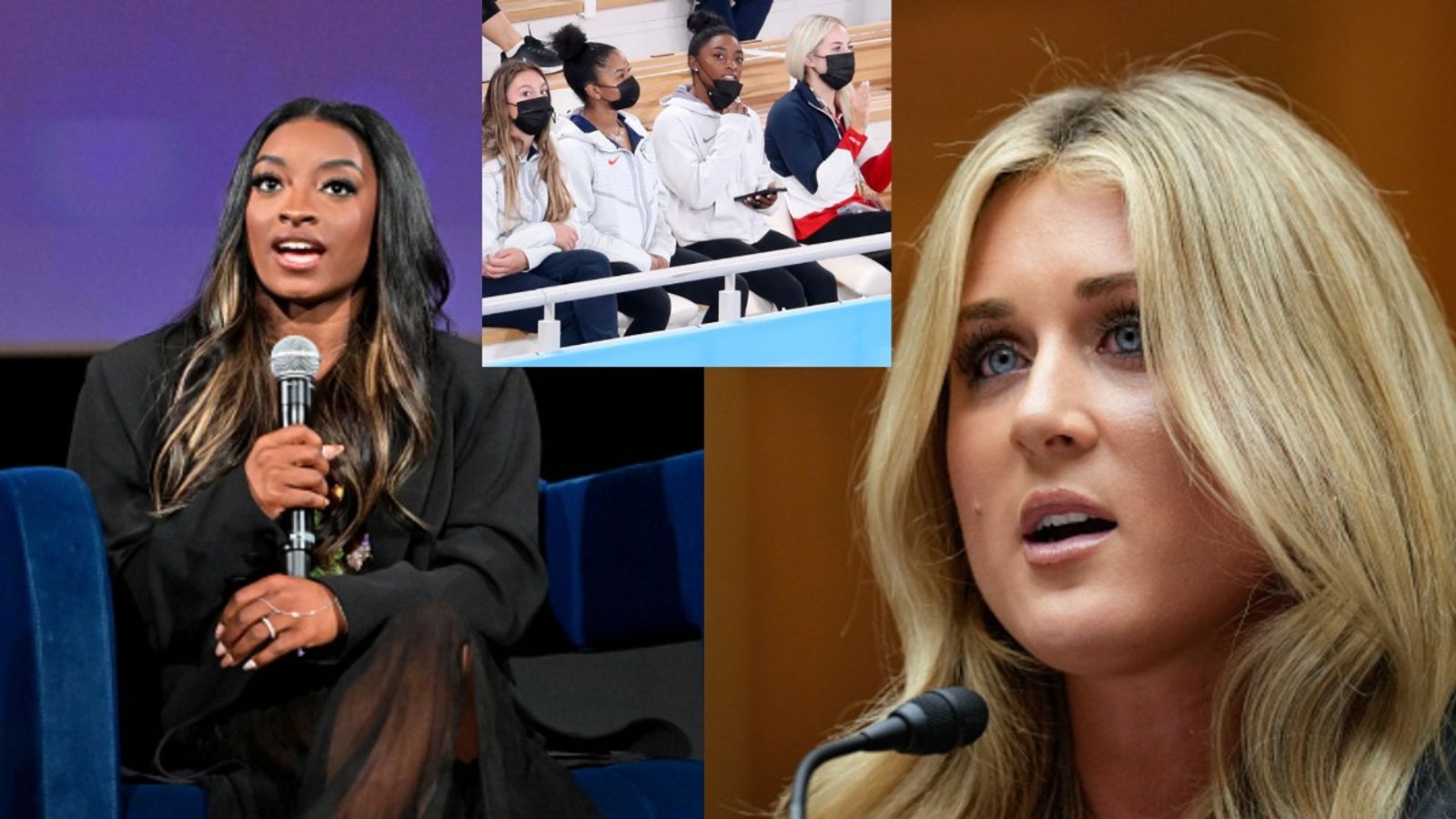In the latest chapter of the divisive discourse over transgender inclusion in sports, retired Olympic gymnast MyKayla Skinner has stepped into the fray—publicly siding with Riley Gaines and criticizing her former teammate, Simone Biles.
The growing rift between Biles and Gaines has captured national attention. At its core is a heated exchange about fairness in women’s sports, ignited after Gaines made remarks regarding a transgender athlete’s participation in a high school softball tournament. Gaines, a former NCAA swimmer and vocal conservative advocate, remarked, “Comments off lol. To be expected when your star player is a boy,” prompting widespread backlash and a sharp response from Biles.
MyKayla Skinner speaks out
Skinner, 28, released a strongly worded statement on June 13 through One America News, expressing disappointment in Biles’ choice of words and actions.
“As an athlete who has dedicated years to a sport, I’ve always believed that true competition should elevate us — not diminish others,” Skinner stated. “That’s why it’s deeply troubling to see Simone Biles publicly label a fellow female athlete a ‘sore loser’— simply for expressing valid concerns about fairness in women’s sports.”
MyKayla Skinner applauded Gaines’ outspokenness, stating, “I commend and appreciate Riley Gaines for having the courage to speak up. Women like her are not only standing for fairness, but for the future of female athletics itself. She deserves support — not ridicule.”
Simone Biles and Riley Gaines clash online
Earlier this month, Simone Biles addressed Gaines’ controversial post, which misgendered a trans athlete. The gymnastics icon responded on X, formerly Twitter:
“Riley Gaines You’re truly sick, all of this campaigning because you lost a race. Straight-up sore loser… You should be uplifting the trans community and perhaps finding a way to make sports inclusive OR creating a new avenue where trans [people] feel safe in sports.”
Simone Biles also suggested a new transgender category across all sports, emphasizing inclusivity. The 28-year-old has long been an advocate for LGBTQIA+ rights and frequently speaks out against hate.
However, the response did not sit well with Gaines, who hit back:
“It’s not my job or the job of any woman to figure out how to include men in our spaces… Men don’t belong in women’s sports, and I say that with my full chest.”
A rift behind the scenes
MyKayla Skinner didn’t stop at current events. She accused Biles of past mistreatment during their time as teammates, claiming she was “belittled, dismissed and ostracized” by the gymnastics superstar.
“The pressure to stay silent was immense,” she continued. “But witnessing this kind of public shaming, especially from someone in a position of influence, makes that silence no longer acceptable.”
She further criticized Biles’ use of her platform:
“It’s one thing to disagree. It’s another to use your platform to bully and demean… No one should be punished for standing up for fairness and biological reality. We should be lifting each other up — not tearing one another down for speaking hard truths.”
Biles issues apology
Despite the charged exchange, Simone Biles later offered a rare apology for getting personal:
“The current system doesn’t adequately balance [competitive equity and inclusivity]… and it didn’t help for me to get personal with Riley, which I apologize for.”
Still, MyKayla Skinner’s remarks have added fuel to an already inflamed conversation, opening up deeper questions about how public figures address sensitive issues and disagreement in sport.


